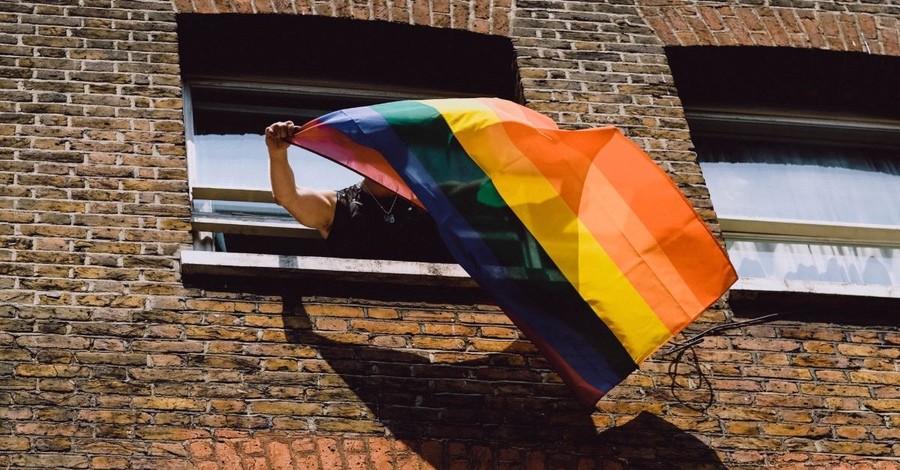5 Things Christians Should Know about the Crisis in Venezuela
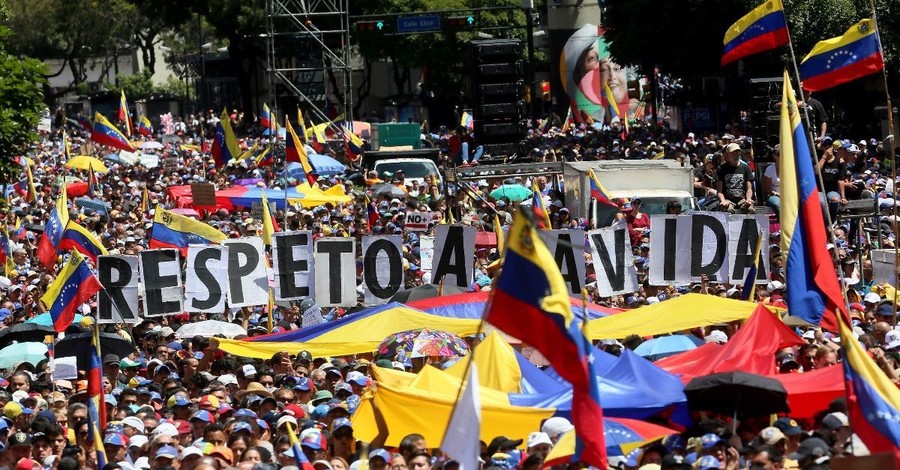
In 1999, Hugo Chávez was elected as President in Venezuela. According to Encyclopaedia Britannica, Chávez was seen as a beacon of hope in a nation that was struggling. Before assuming office, the Venezuelan people were disenchanted with the democratic administration that left more than 50 percent of all Venezuelan citizens in poverty. In hopes that he would follow through on promises of prosperity, the Venezuelan people elected Chávez as their president in 1999.
This would be the beginning of social and political unrest in Venezuela.
Chávez – who had taken to overspending the government’s wealth on social programs – would stay in office until his death in 2013. While in office, Chávez managed to nationalize the petroleum sector, telecommunications, electricity, steel and cement companies. He also introduced a referendum in 2009 which eliminated term-limits. The referendum was approved.
After Chávez died of cancer in February 2013, Nicolás Maduro was appointed President.
Within Maduro’s first year as president, inflation climbed to over 50 percent and the economy took a nose dive. The socialist dictator began disregarding legislature’s votes and declaring renewable states of emergency that gave the military more power to “maintain public order.” By 2017, the International Monetary Fund found that the Venezuelan GDP had dropped by 14 percent and the inflation rate was at 2,400 percent.
In what many believe to be a rigged election, Maduro won re-election in 2018. Soon after, the head of the National Assembly and the opposition party's newly elected leader Juan Guaidó declared himself the nations acting president and was widely recognized on the international stage.
Guaidó, however, has little power over the country as Maduro maintains military control.
Here are five things Christians should know about the crisis in Venezuela:
Photo courtesy: Getty Images
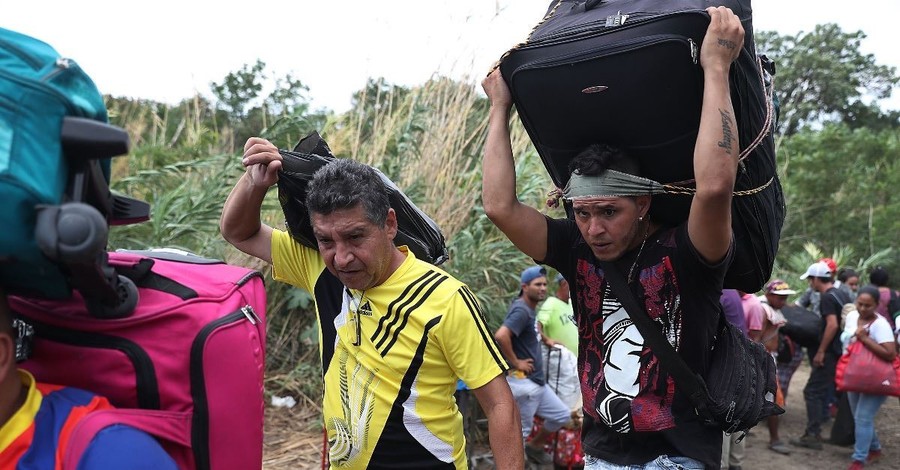
1. People are Starving to Death
According to the BBC, in recent years, some three million Venezuelans have fled from the country because of political corruption, violence, and crippling poverty. According to a 2017 Bengoa-Enconvi survey, eight out of 10 Venezuelans reported that they were eating less because they did not have enough food at home and six out of 10 said they had gone to bed hungry because they could not afford to buy food. The BBC reports that the survey also found that 64.3 percent of people had lost about 25 pounds on average in 2017, nine out of ten people reported that they could not afford their daily food and 8.2 million people reported having two or fewer meals a day. With hyperinflation destroying the value of the bolivar, most Venezuelan’s are finding it difficult to afford any of the basic necessities including food and toiletries.
Photo courtesy: Getty Images/Joe Raedle/Staff
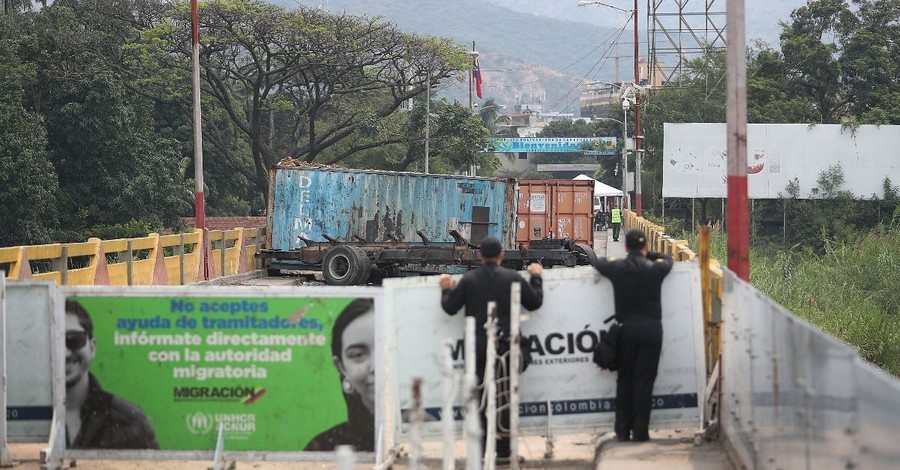
2. The Religious Climate is Digressing
According to the World Atlas, Venezuela is the home to some 31 million people. Of the 31 million living in the Latin American country, 88 percent of them identify as Christians – 71 percent as Roman Catholic and 17 percent as Protestant. According to the International Mission Board, however, along with the social, political and economic climate, the religious climate is also regressing. Two IMB missionaries who lived and worked in Venezuela for nearly three decades said that Maduro has immortalized Chavez, exalting him as a god. According to the IMB, “Maduro created a cult that glorifies the ‘eternal commander,’ making Chavez’s burial place a center of worship and prayer to Chavez.” Maduro also shared that “he communes with Chavez,” and performs ritual sacrifices at the presidential palace in honor of Chavez.
Reportedly, some churches have even removed “our Father” from the Lord’s Prayer in exchange for “Our Chavez, who art in heaven.” The IMB reports that government officials are participating in rampant idol worship, spiritism, witchcraft and materialism.
Photo courtesy: Getty Images/Joe Raedle/Staff
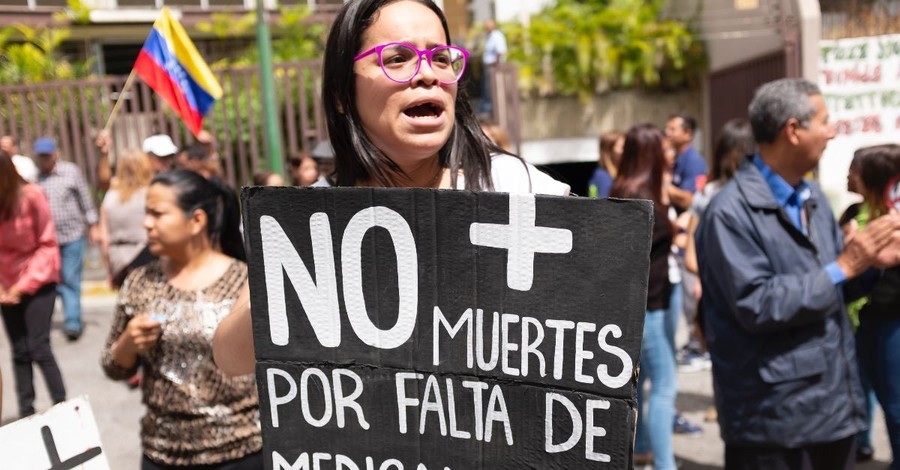
3. A Lack of Medical Supplies
According to Project Hope, when the price of oil began to plummet in 2014, the Venezuelan economy began to fall apart. The government had relied far too heavily on the oil industry for national revenue and Maduro had over-borrowed and overspent money on social programs which provided citizens food, water and medicine through national subsidies. When the economy crashed, Venezuela could no longer afford to provide the basic necessities to the people, so they began to starve, and businesses began to close down. Additionally, Venezuela could no longer afford to import food or medication from abroad.
The lack of basic necessities has caused the rate of disease to sky-rocket in Venezuela and in nations where Venezuelans are fleeing to.
In a field reports from Dr. Atilio Rivera-Vasquez, the Project Hope doctor describes the situation as critical. Reportedly, there is a “surge in the number of children with measles” and more and more people are contracting malaria, dengue, diarrheal diseases, skin diseases and respiratory tract infections. Gender-based violence and HIV are also on the rise. Rivera-Vasquez also noted that women are at greater risk as “maternal death skyrocket due to complicated pregnancies and lack of antenatal care, anemia controls or Caesarian sections.”
Photo courtesy: Getty Images/Marco Bello/Stringer
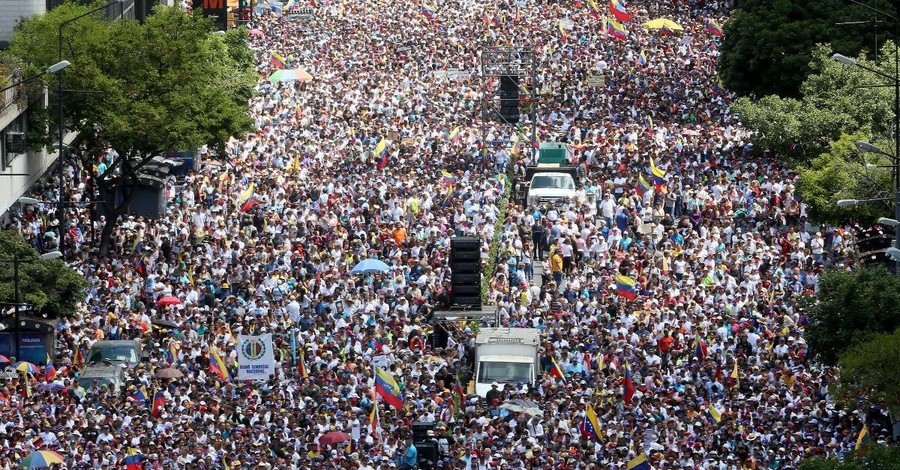
4. Violent Protests Have Broken Out in the Streets
Protesters – desperate for food and freedom – have been taking to the streets in Venezuela since April 2017 in hopes that Maduro would resign. According to the Guardian, tens of thousands of opposition party Venezuelans took to the streets in a nationwide protest on February 2, 2019, to urge the newly re-elected Maduro to step down.
Reportedly, the protesters hoped they could maintain pressure on Maduro after self-proclaimed interim president Juan Guaidówas widely recognized as legitimate at the end of January on the International stage. So far, Maduro has not indicated that he will be ceding his position to Guaidó.
Instead, just days after the nationwide protest and less than one month after Guaidó proclaimed himself president, Maduro blocked all humanitarian aid from coming into the country, NPR reports. According to the BBC, Maduro said Venezuela would not be accepting the aid because it has “never been, nor are we, a country of beggars.”
On February 6, United States Secretary of State Mike Pompeo shared a photo on Twitter of the roads and bridges in Venezuela being blocked off from aid. He wrote, “The Venezuelan people desperately need humanitarian aid. The U.S. & other countries are trying to help, but Venezuela's military under Maduro's orders is blocking aid with trucks and shipping tankers. The Maduro regime must LET THE AID REACH THE STARVING PEOPLE."
The Venezuelan people have yet to be allowed access to the aid being flown and driven into the country and in late February 2019, conflict broke out between protesters and Maduro’s military. On February 23, four people were killed and hundreds injured as opposition party members tried to breach government blockades in order to obtain food and medical supplies being withheld from them. According to the Guardian, 60 border guards have defected to Colombia and renounced Maduro.
Guaidó was set to meet with U.S. Vice President Mike Pence on Monday to discuss a new strategy to end the conflict. Following this meeting Pence announced that the U.S. would be placing more sanctions on the Latin American country. He also revealed that the United States would be providing $56 million in aid to the Venezuelan people, ABC News reports.
Photo courtesy: Getty Images/Edilzon Gamez/Stringer
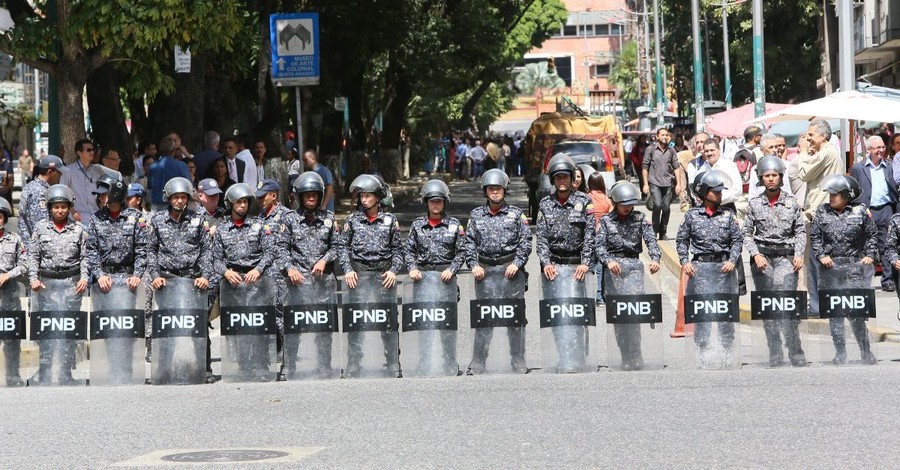
5. How you can help
While plans are being imagined to end Maduro’s reign of terror, here are a couple of things that you can do to help.
First, you could donate money or supplies to relief organizations who are trying to find a way to safely get aid to the people.
Catholic Relief Services is currently collecting donations to help provide “a range of support including food, safe shelter, medical care, legal assistance, livelihoods support, protection, children’s education and counseling,” according to their website. You can donate by clicking here.
Humanitarian aid organization Save the Children, is also collecting monetary donations in order to support Venezuelan’s in need. The organization is also working to “improve hygiene practices in an effort to reduce dangerous communicable disease” and address the root causes of forced migration.
Franklin Graham’s humanitarian aid organization Samaritans Purse is also collecting aid to help “meet the overwhelming physical and spiritual needs of thousands of Venezuelan migrants who are daily entering Colombia.” According to the organization’s website, they are working to provide, “overnight shelter, food, hygiene kits, primary medical care, and more.”
Samaritan’s Purse is also championing the second thing you can do to help Venezuela: pray.
While we have no way of knowing when this crisis will come to an end, we can pray that God protects the people trapped and starving in Venezuela and we can pray that Maduro do the right thing and resign from his role as president of Venezuela.
Photo courtesy: Getty Images/Edilzon Gamez/Stringer


